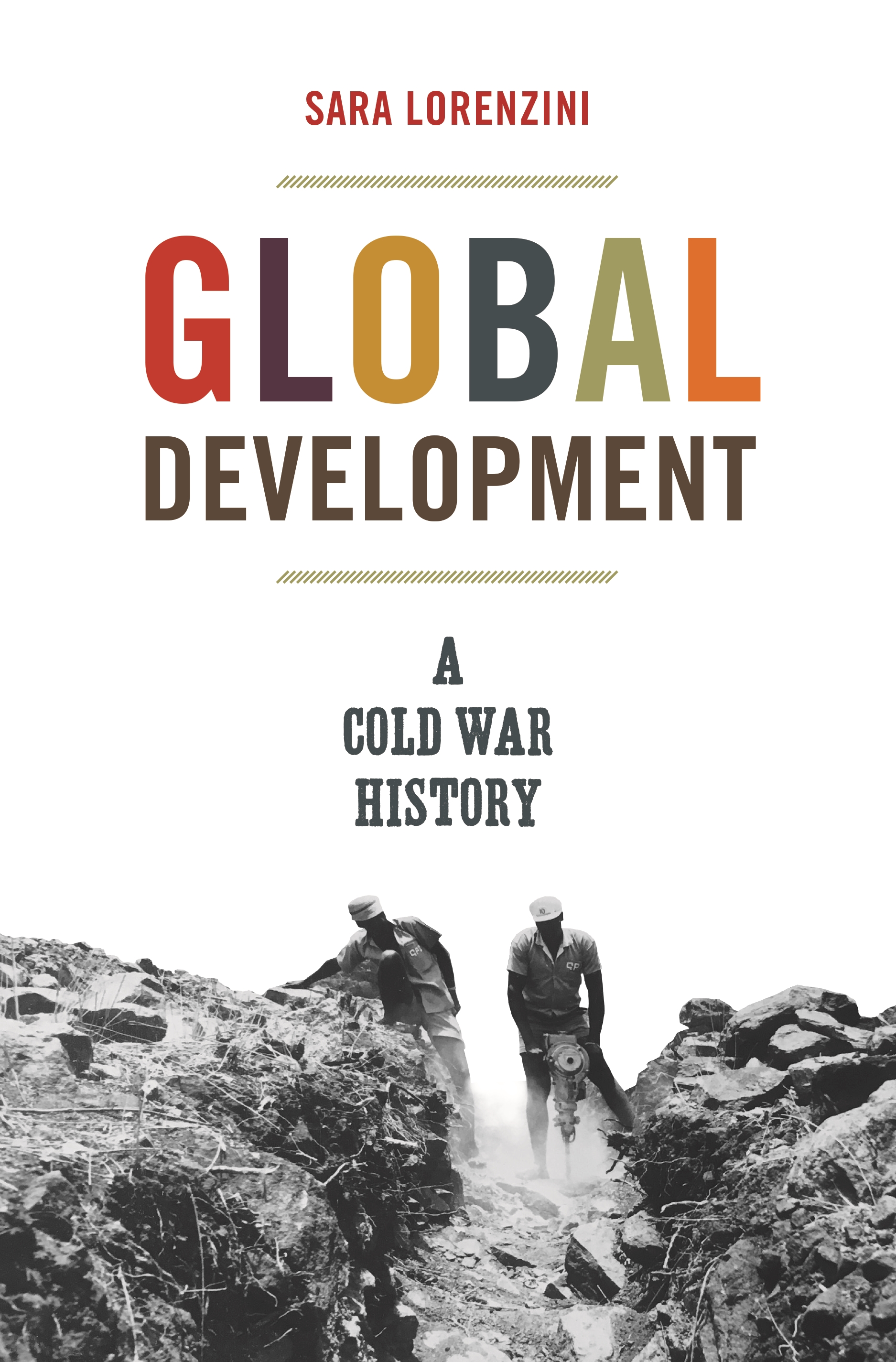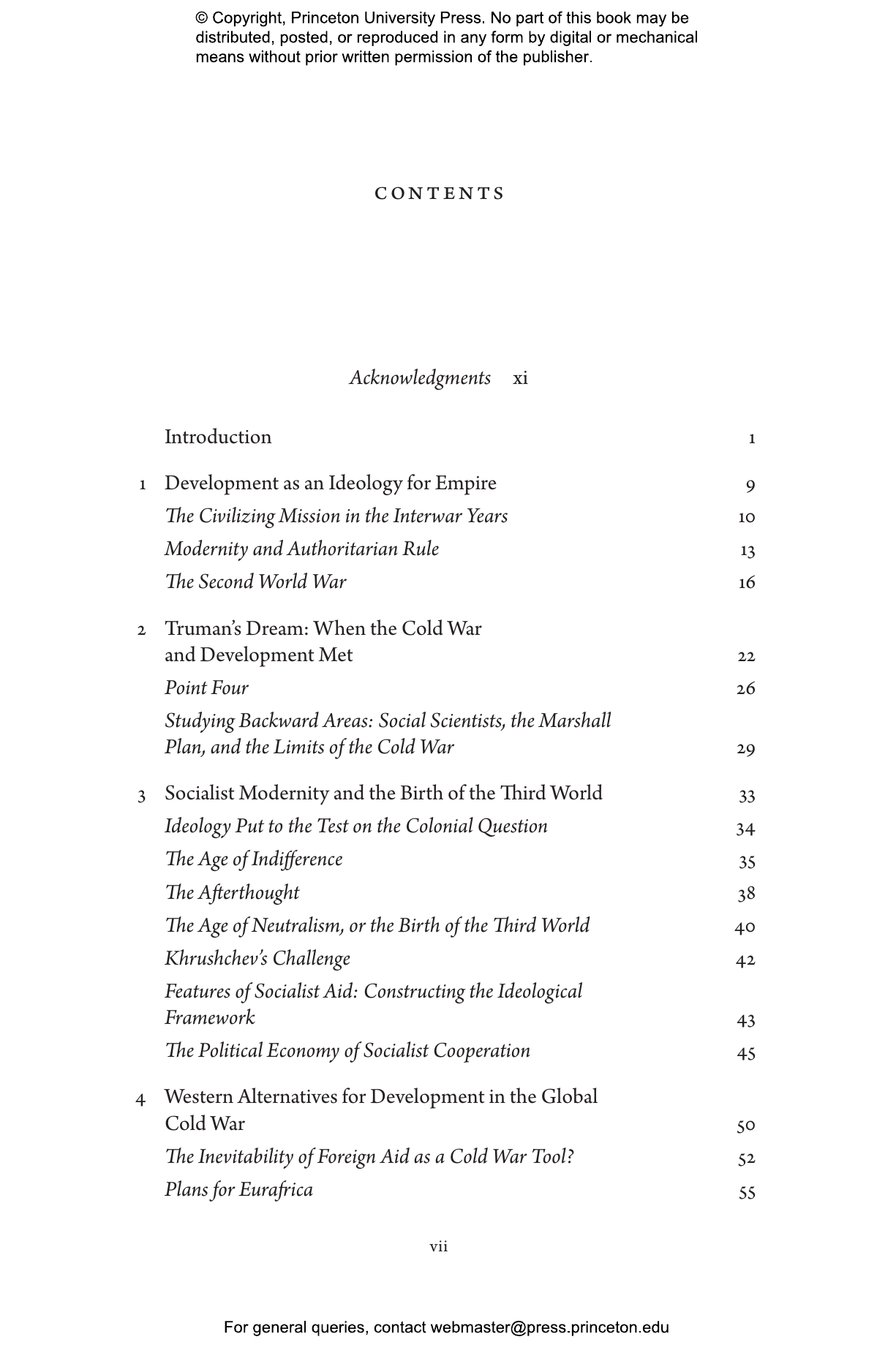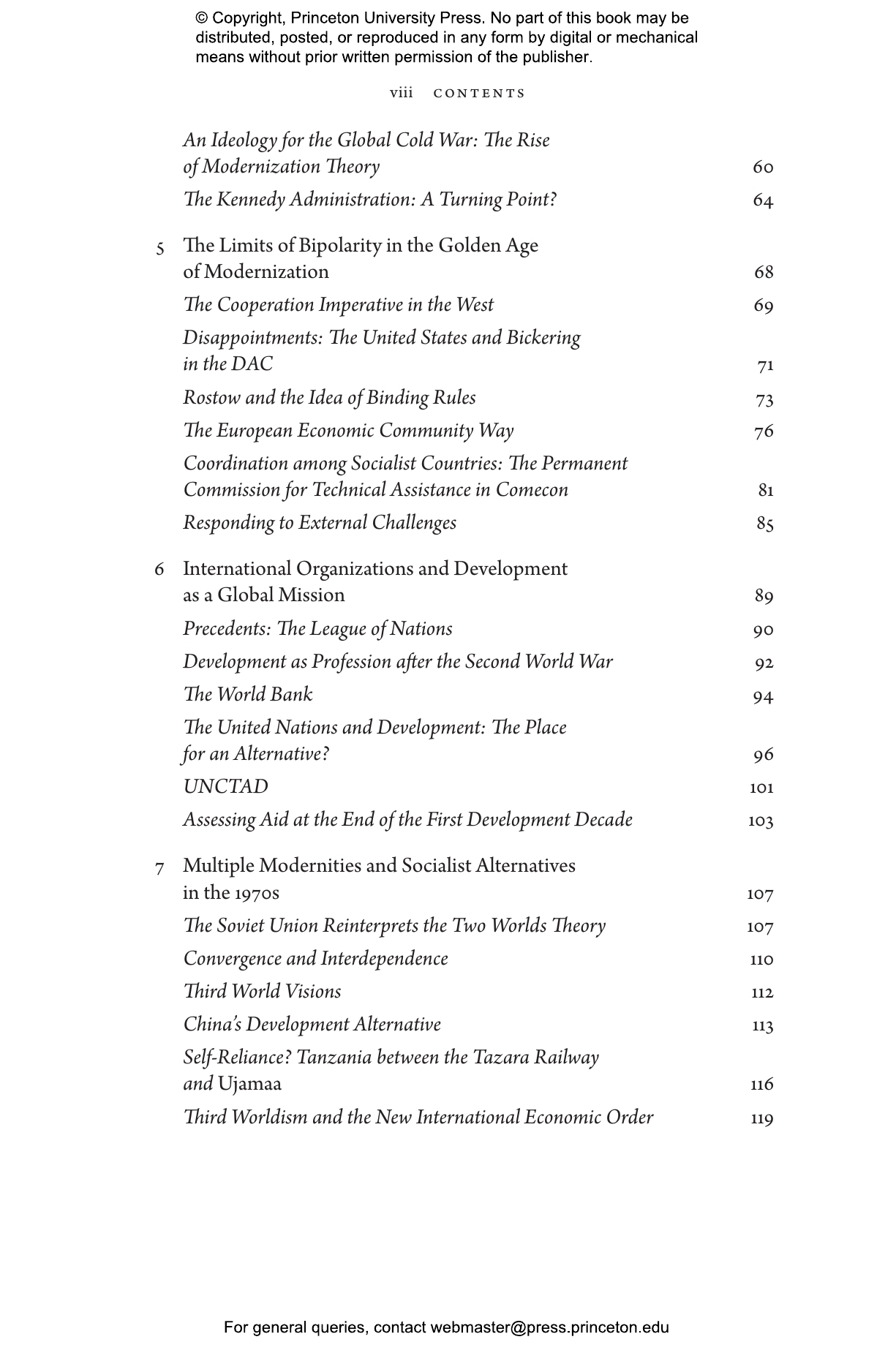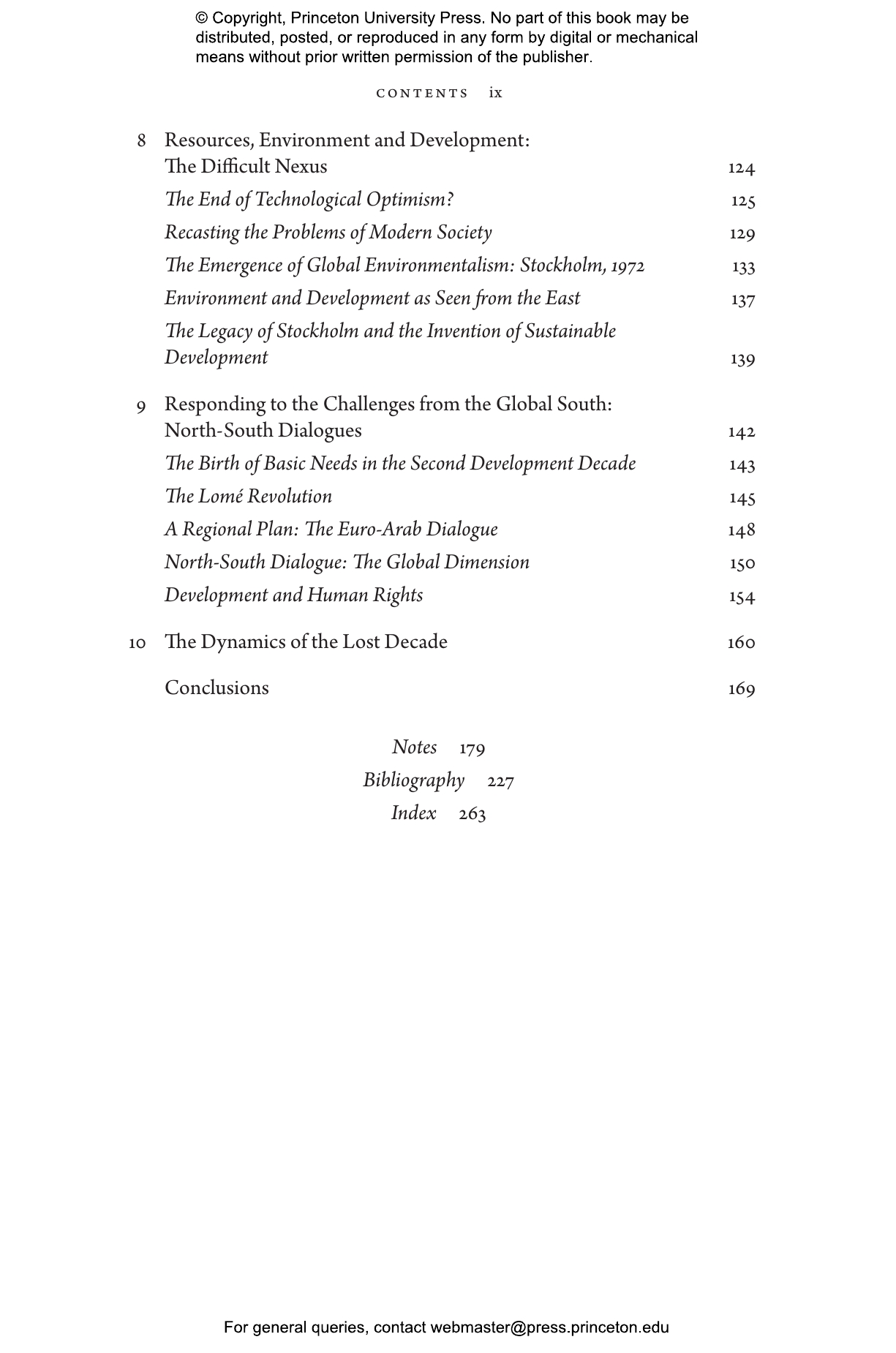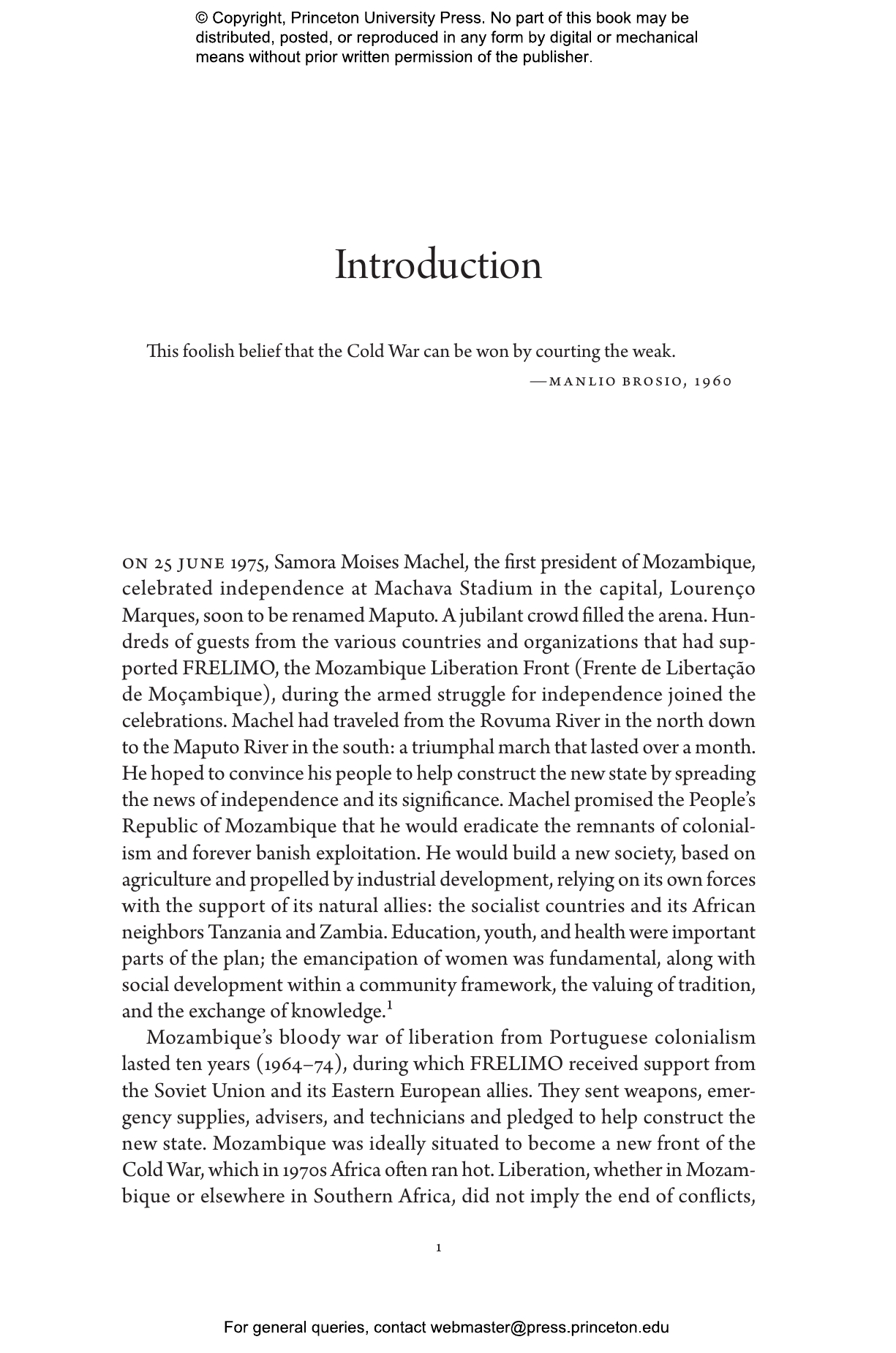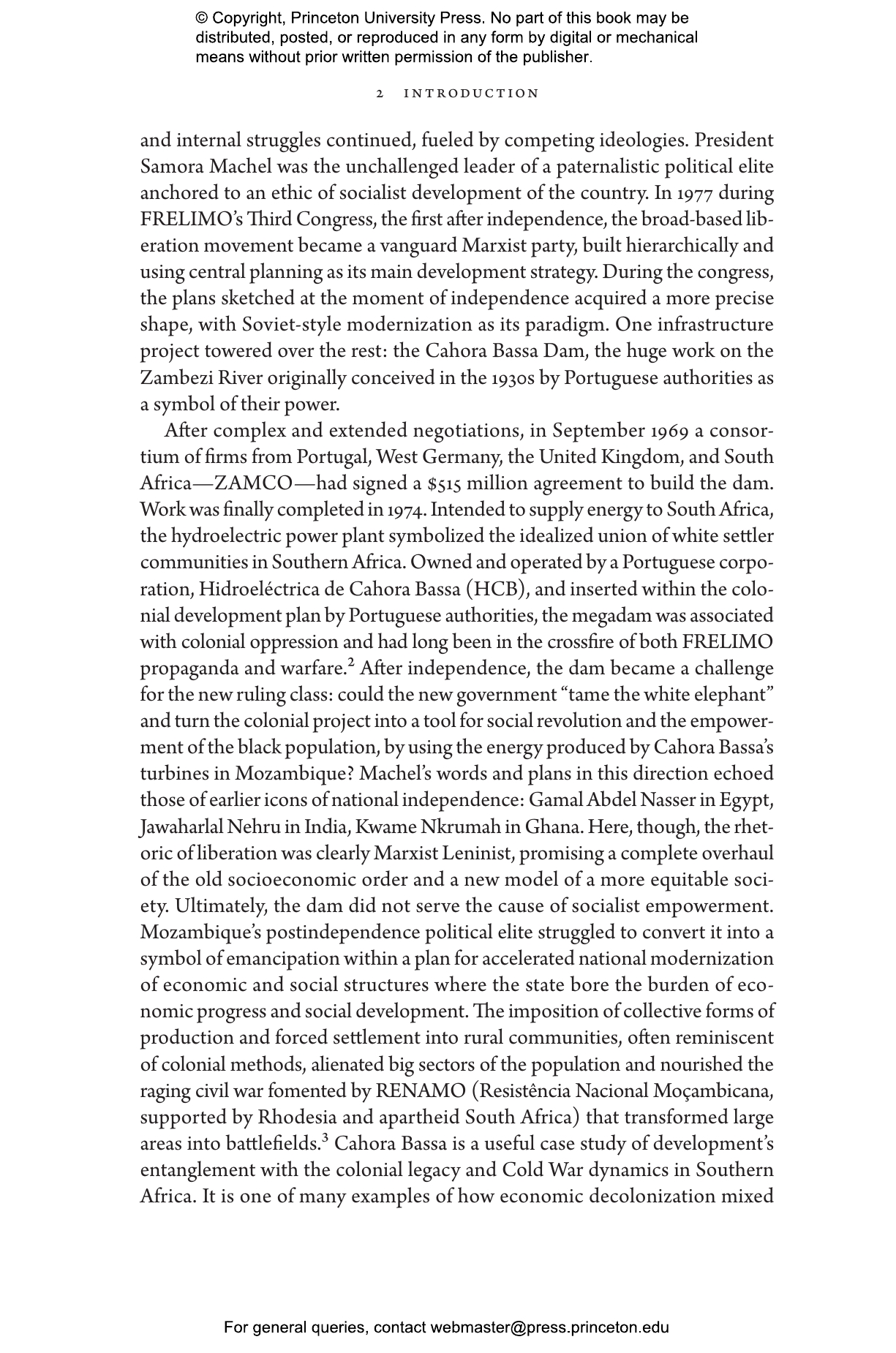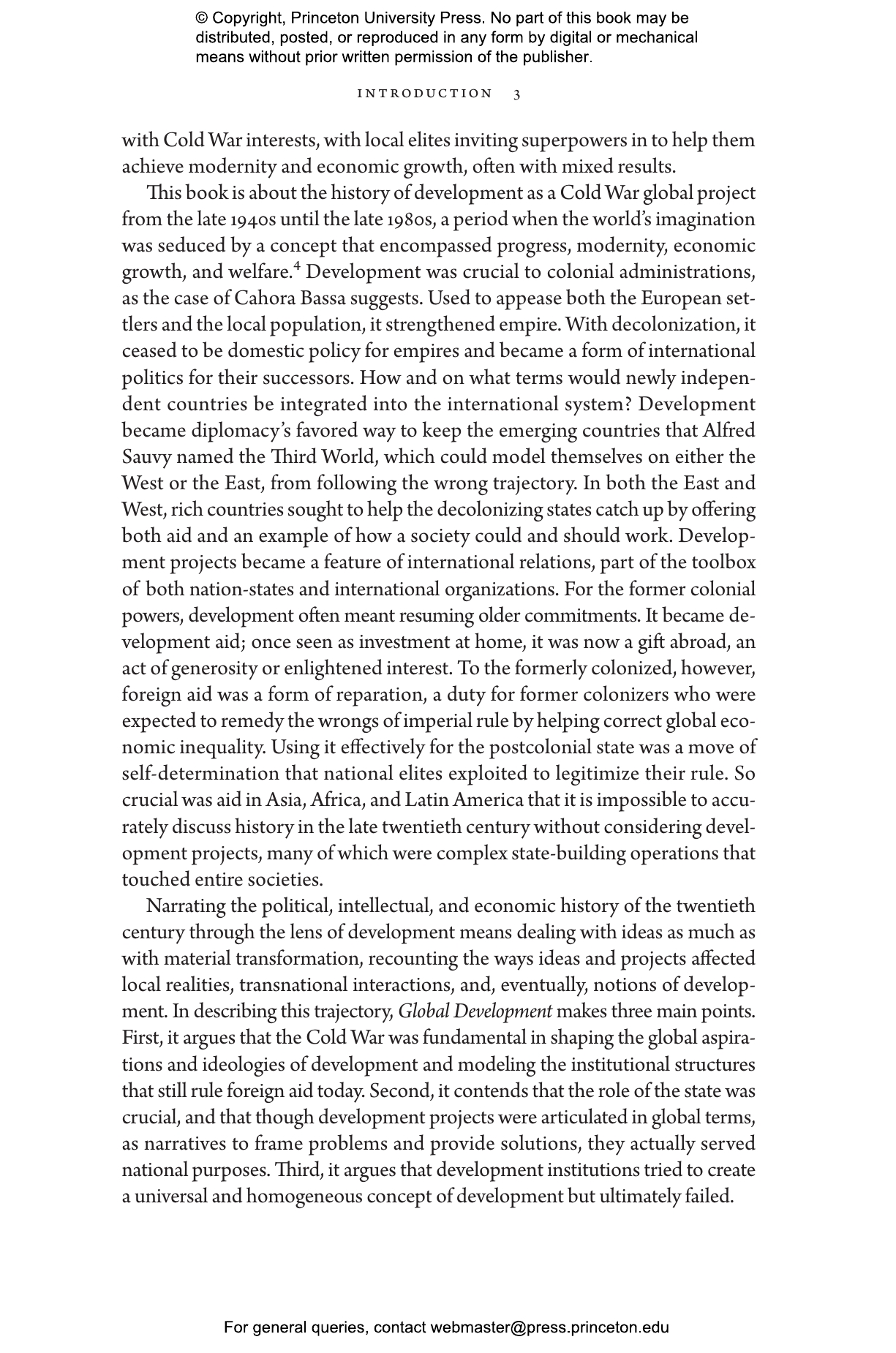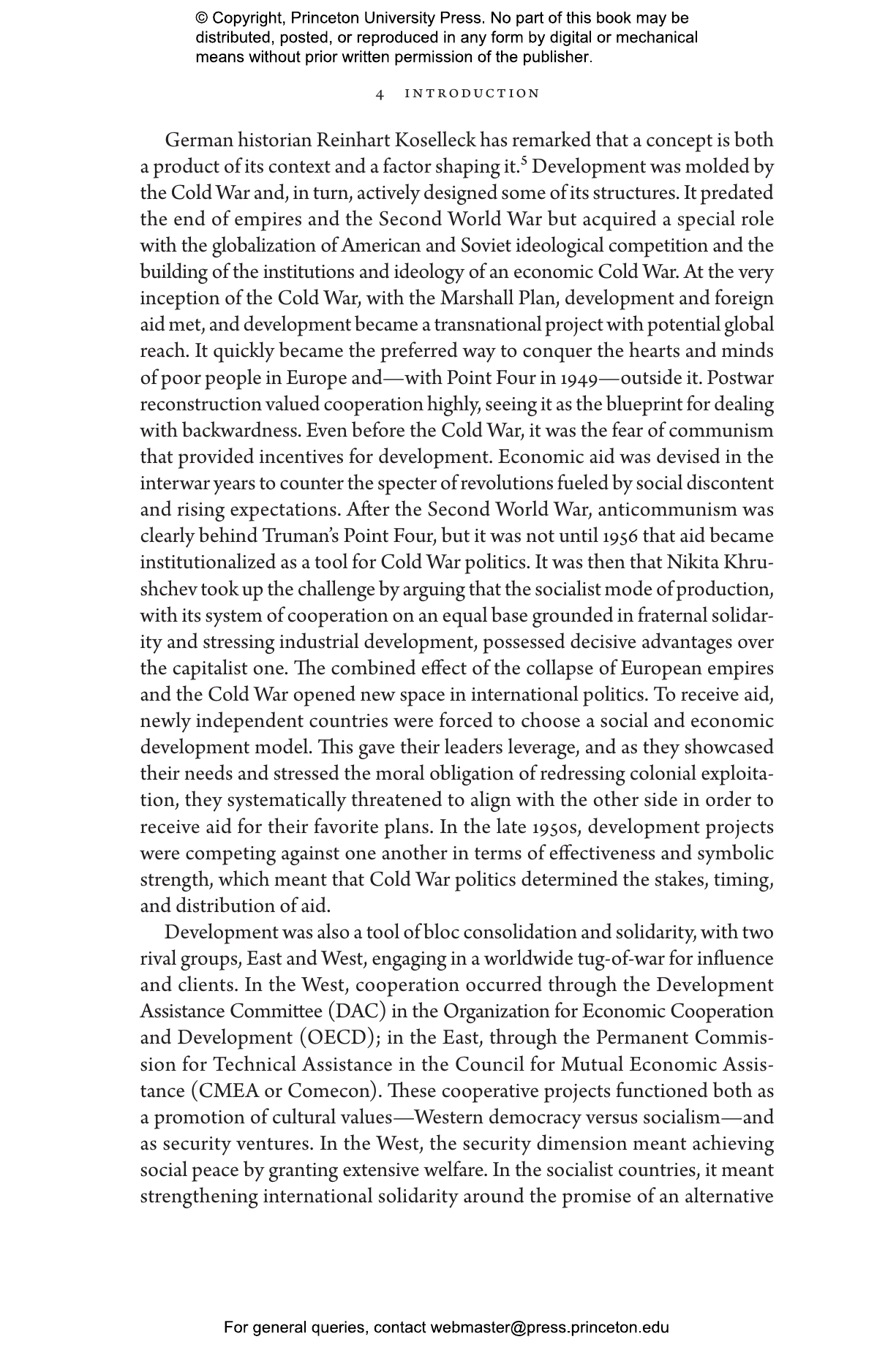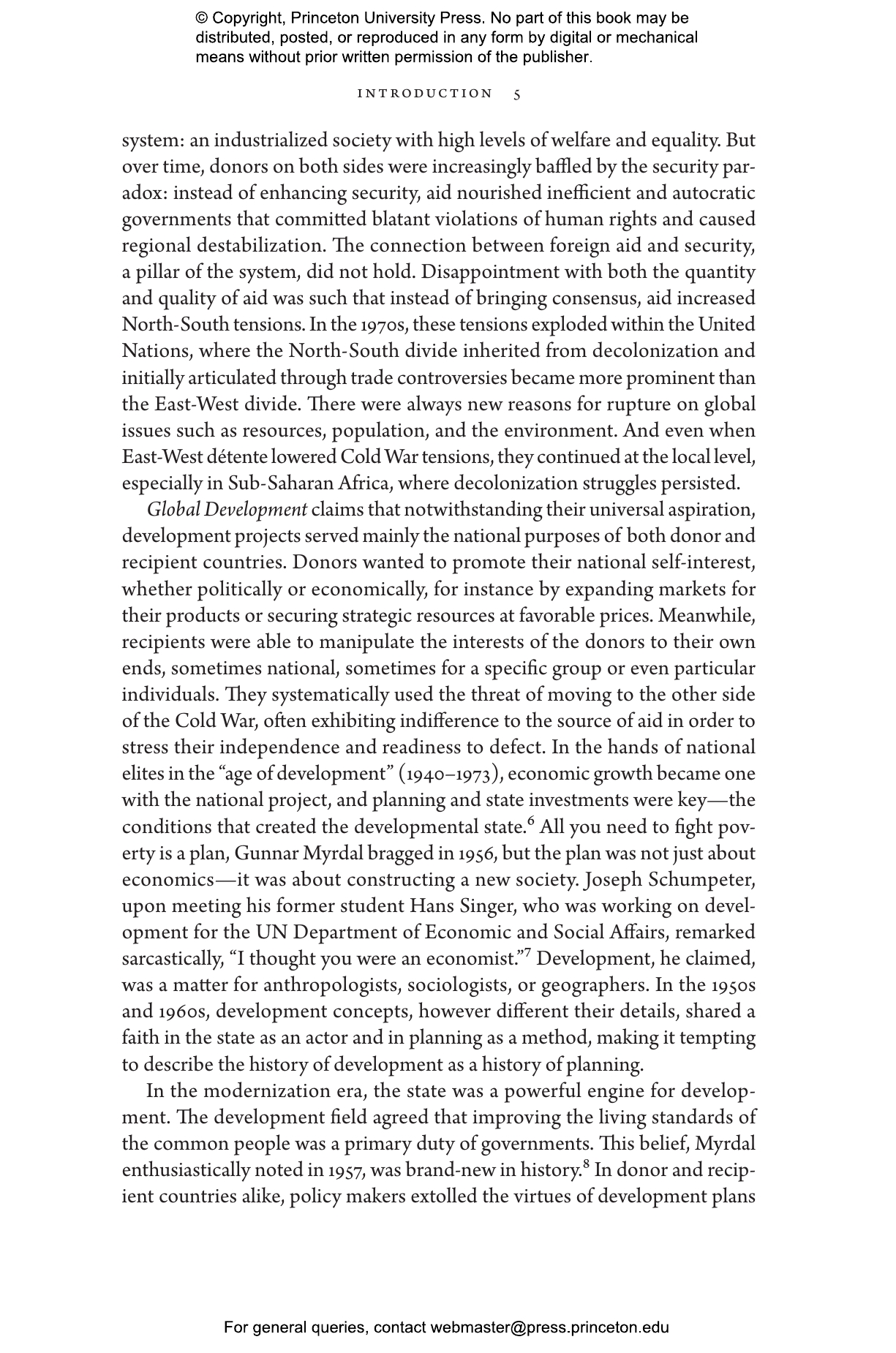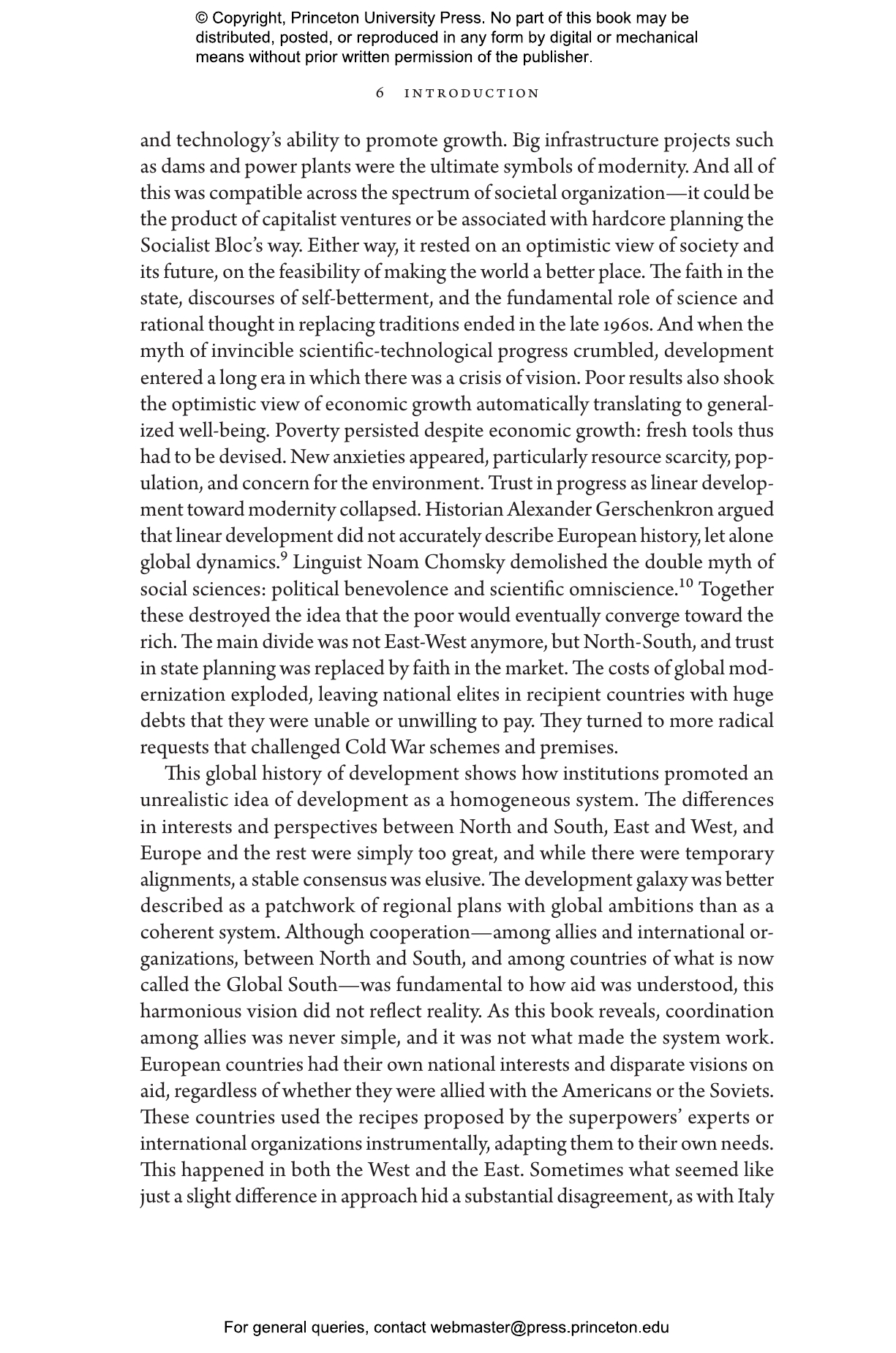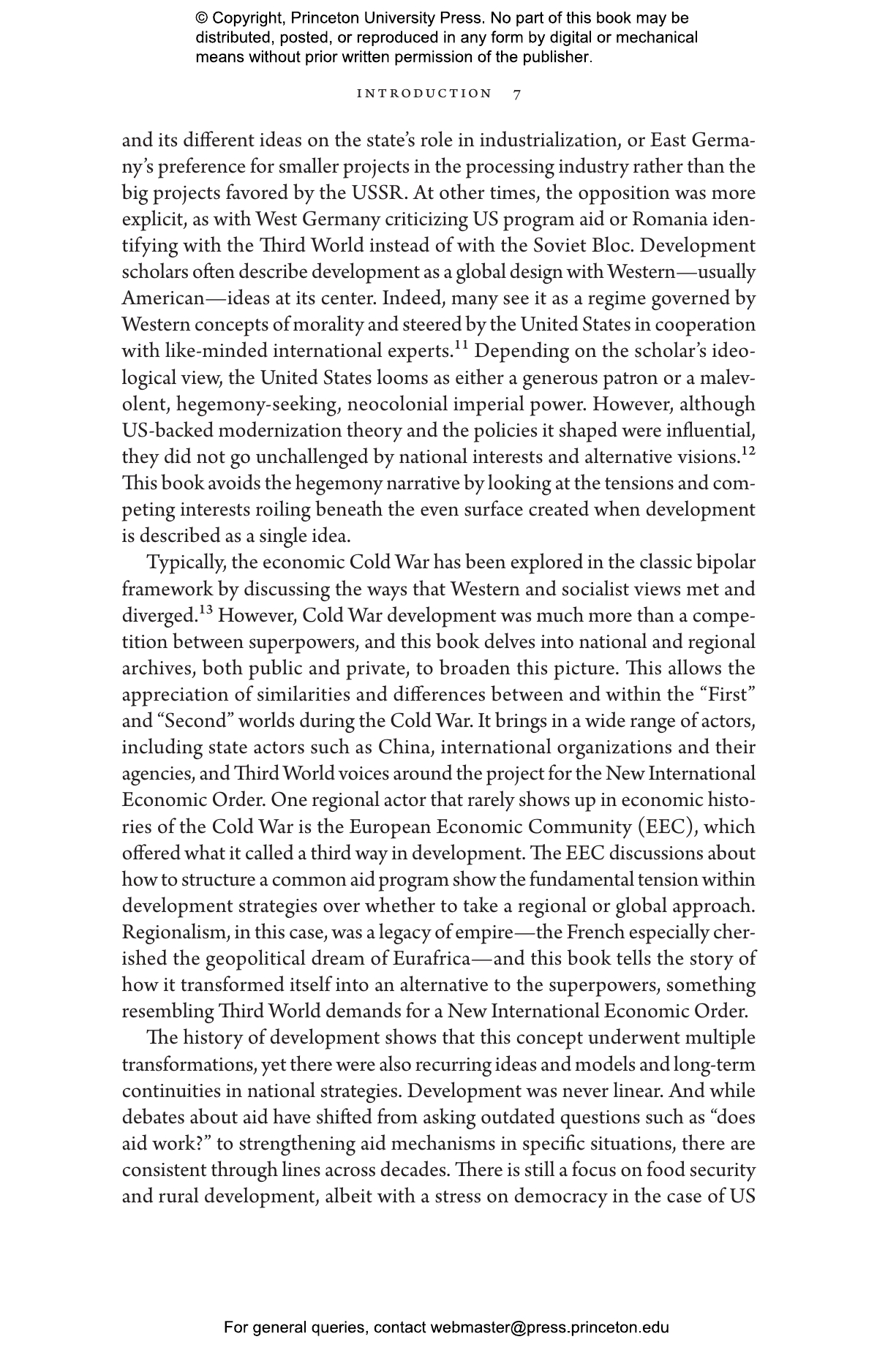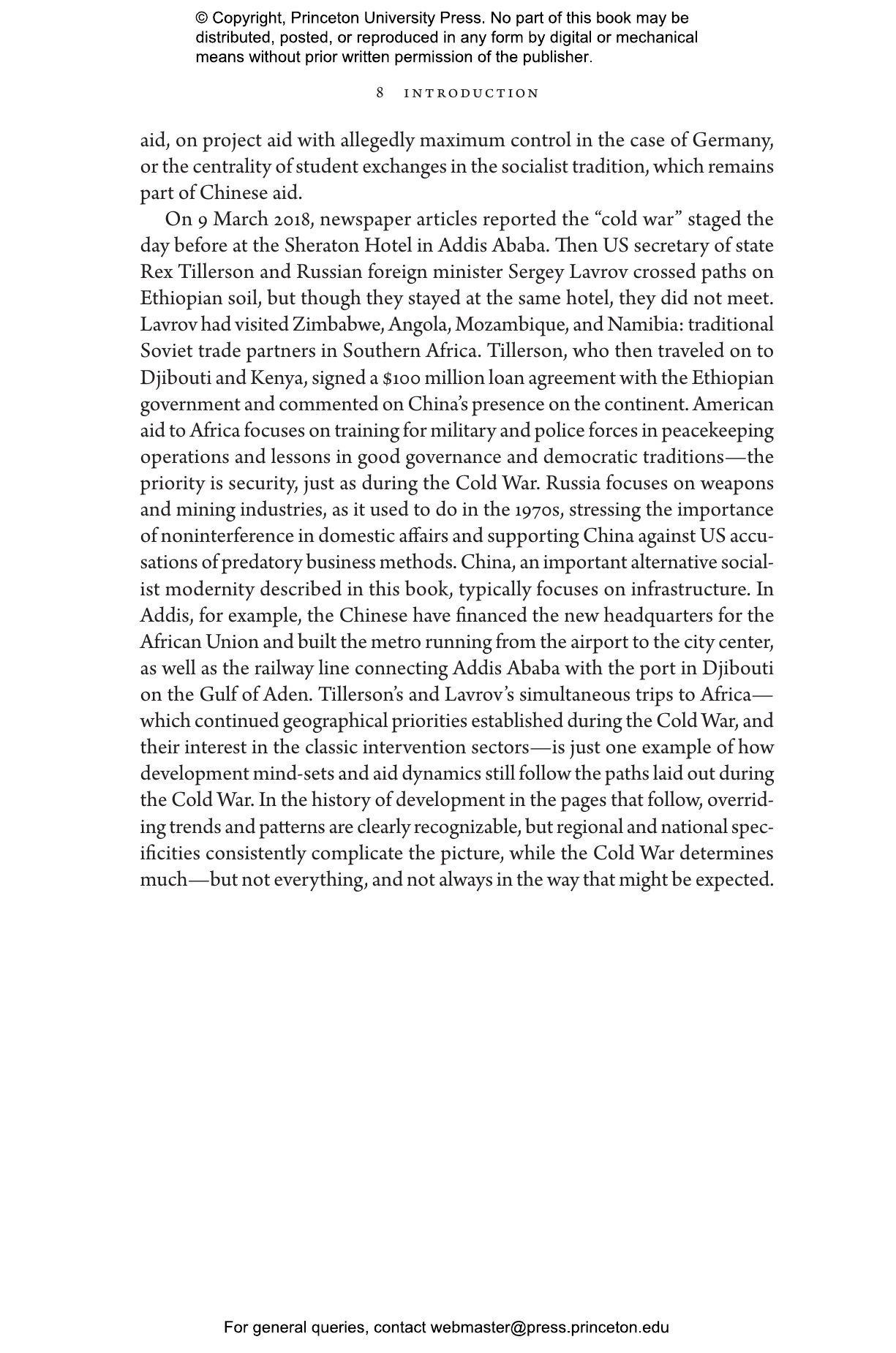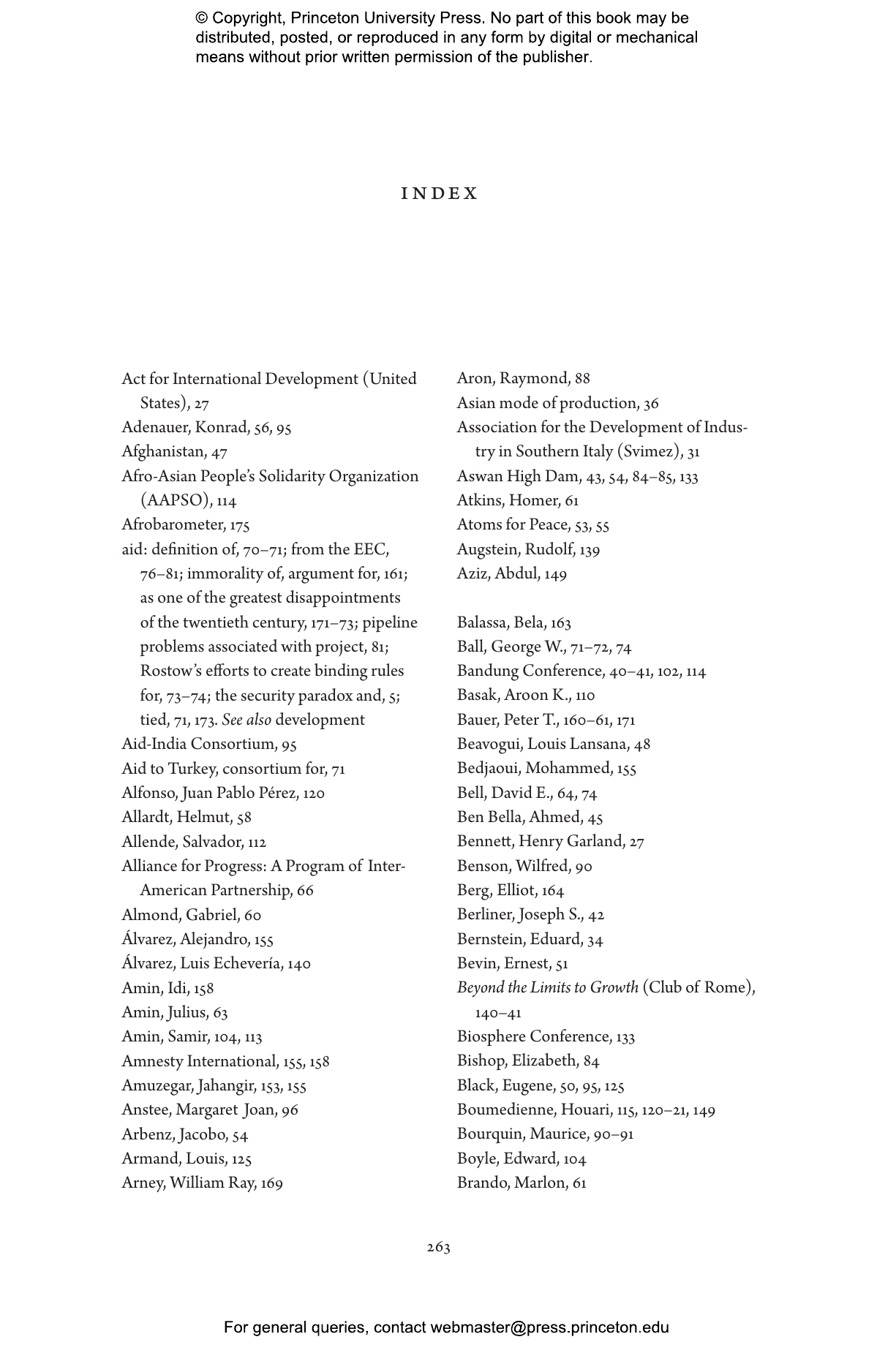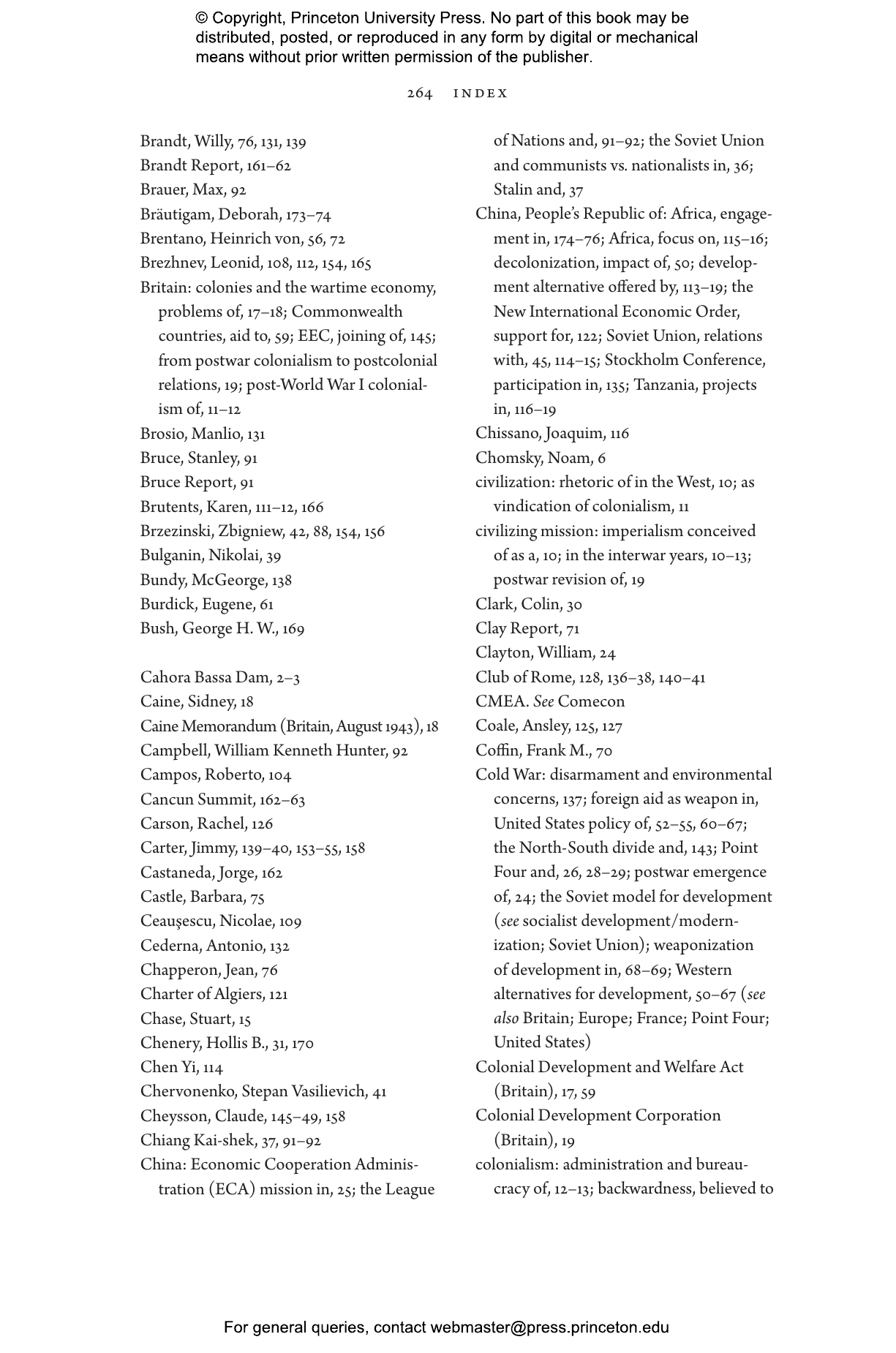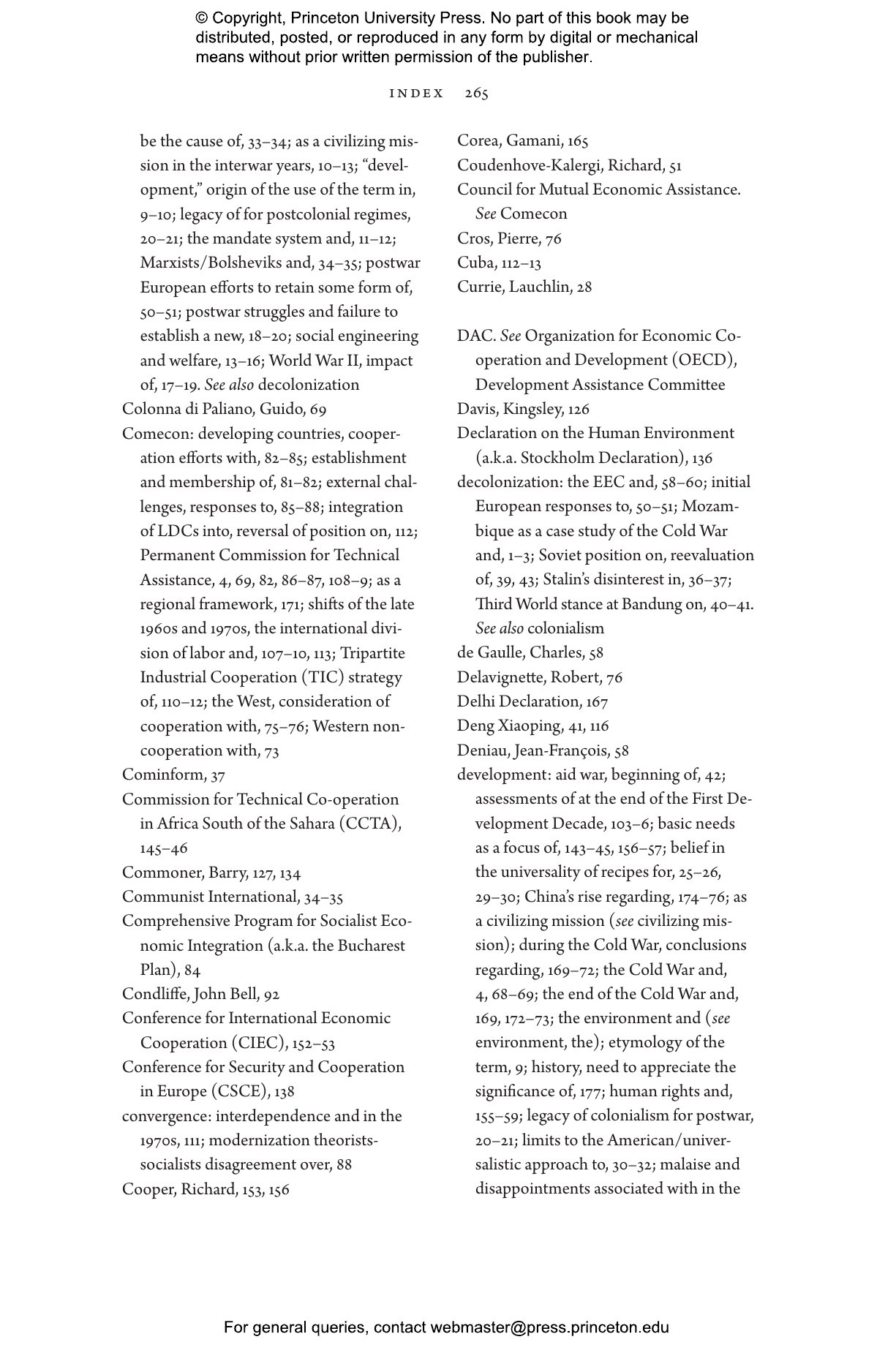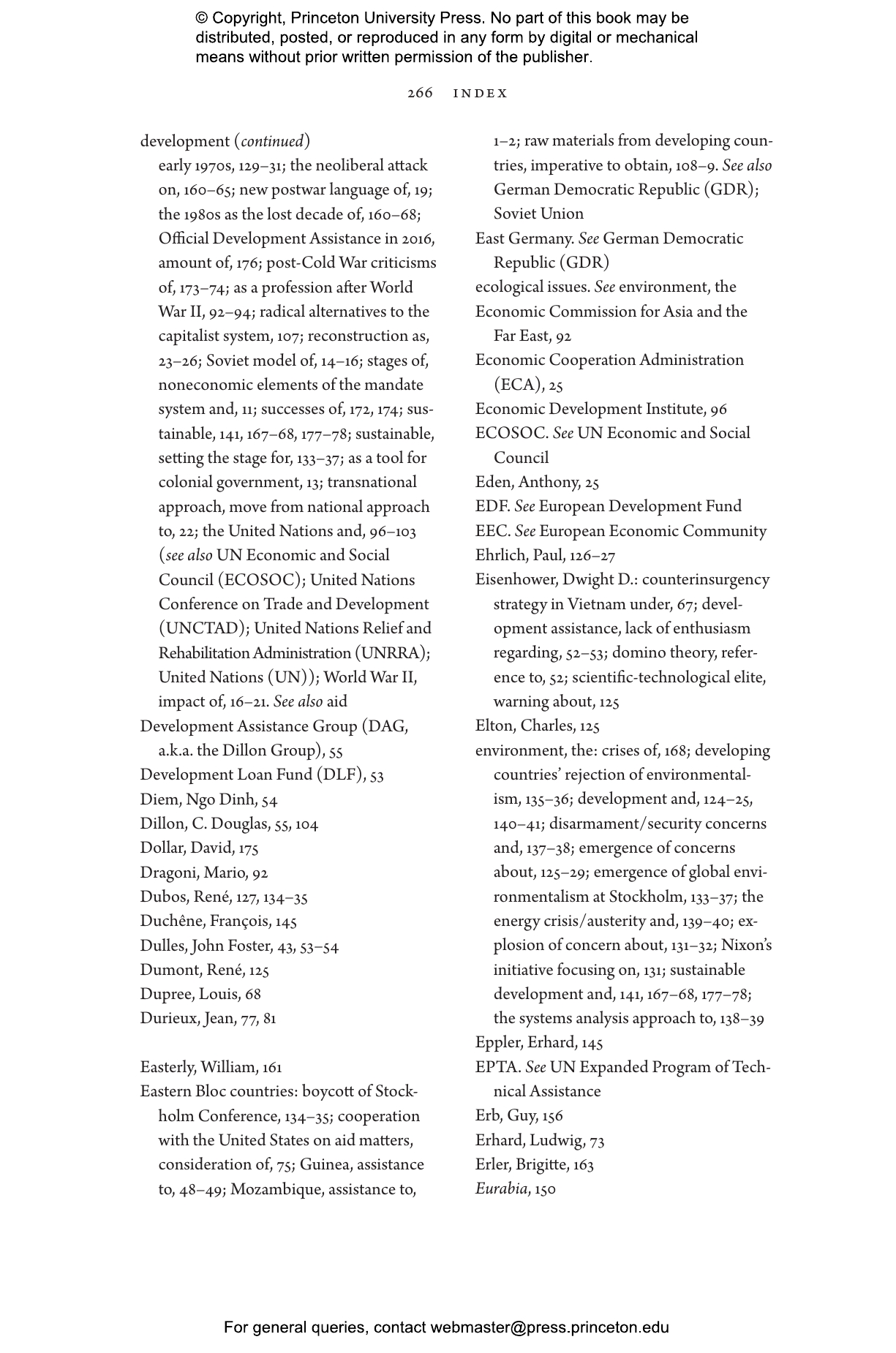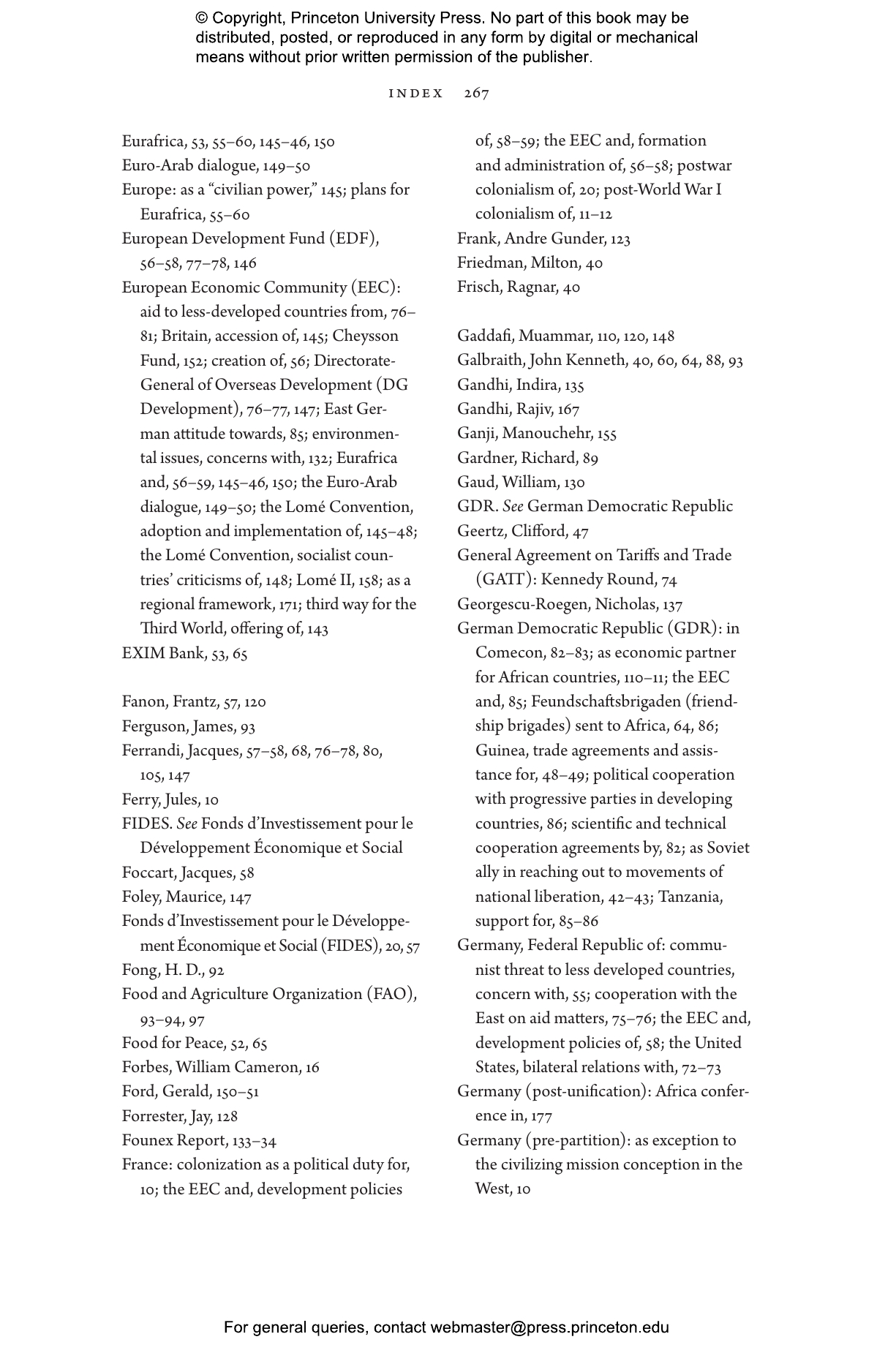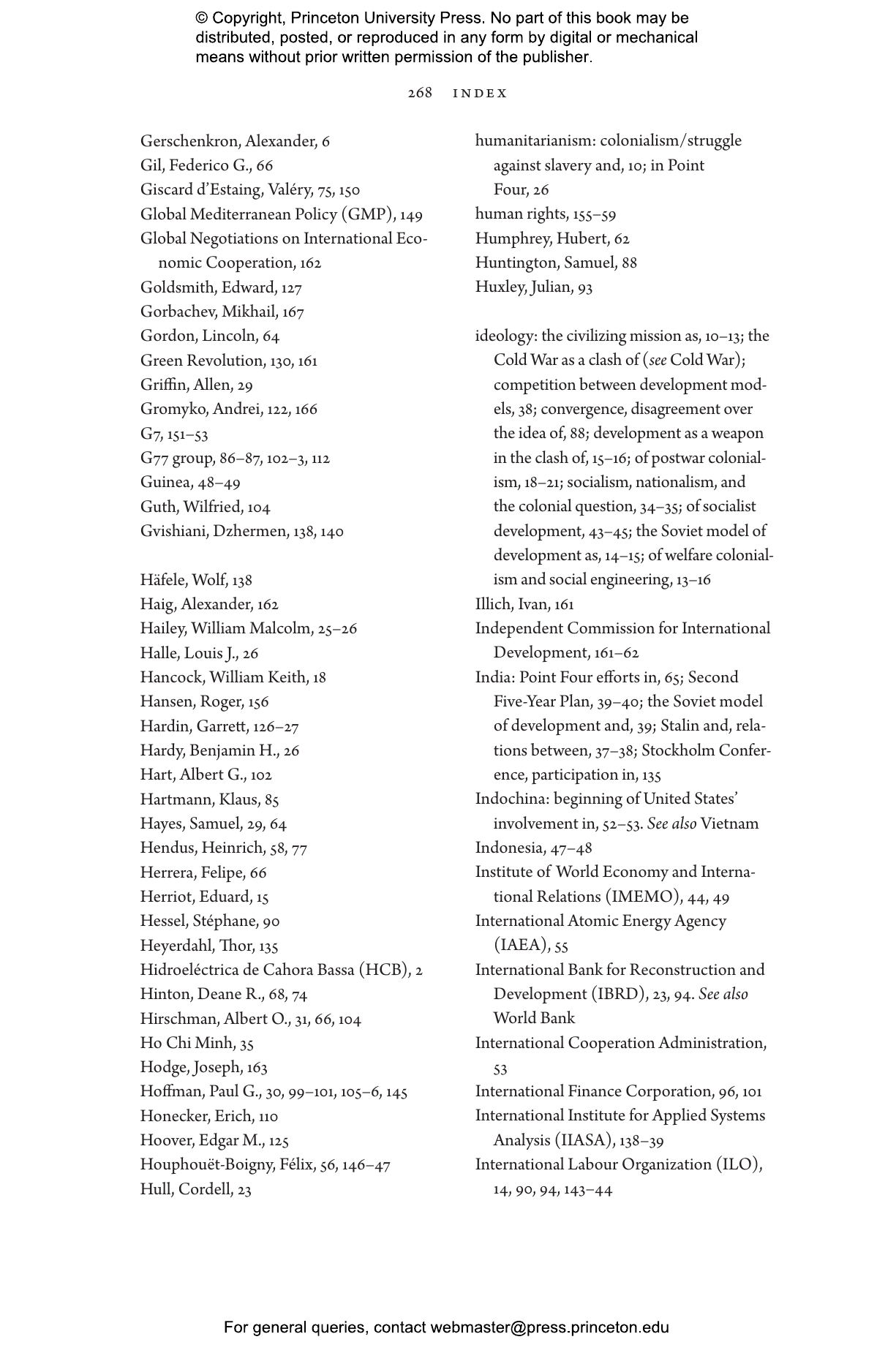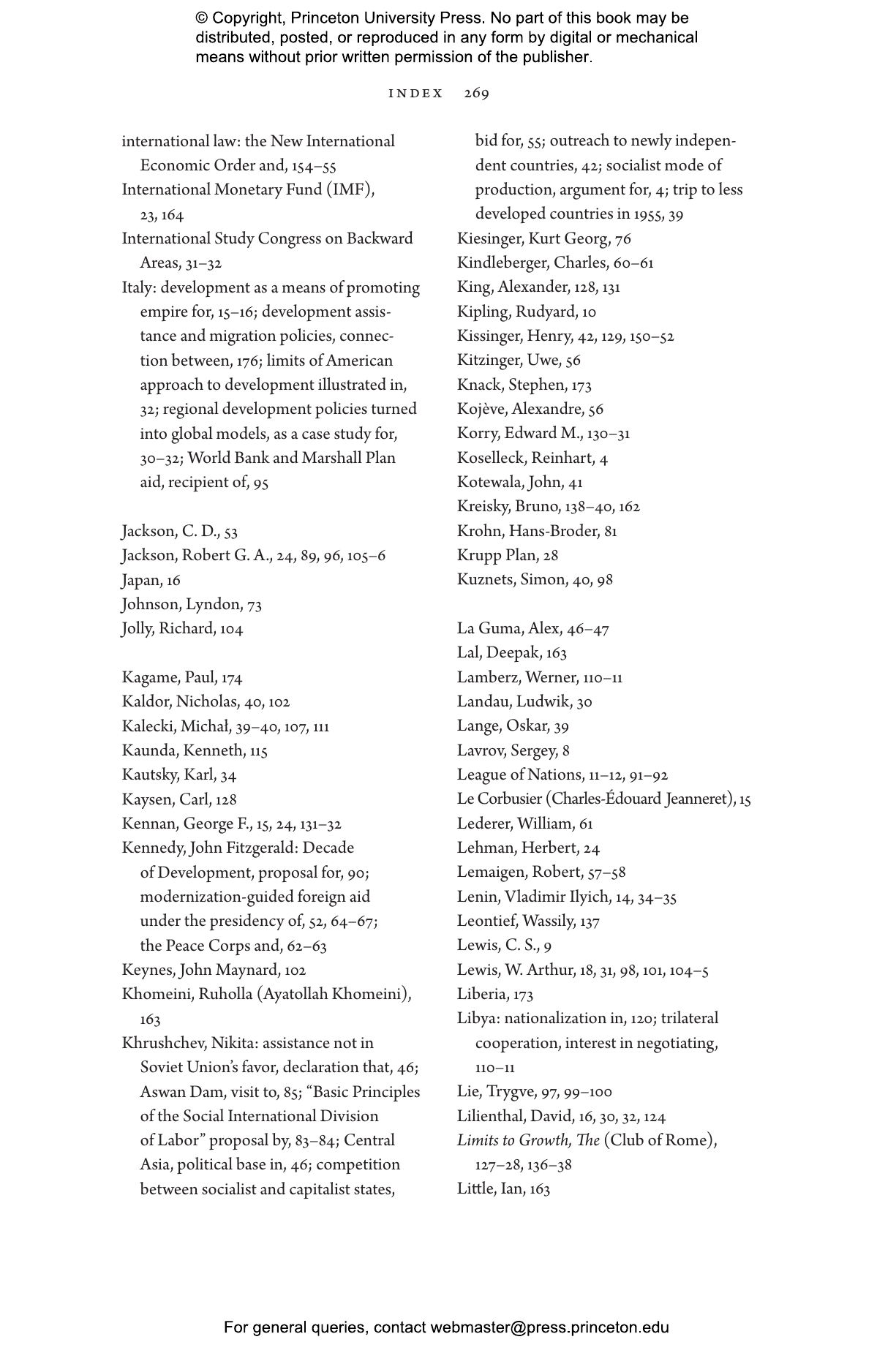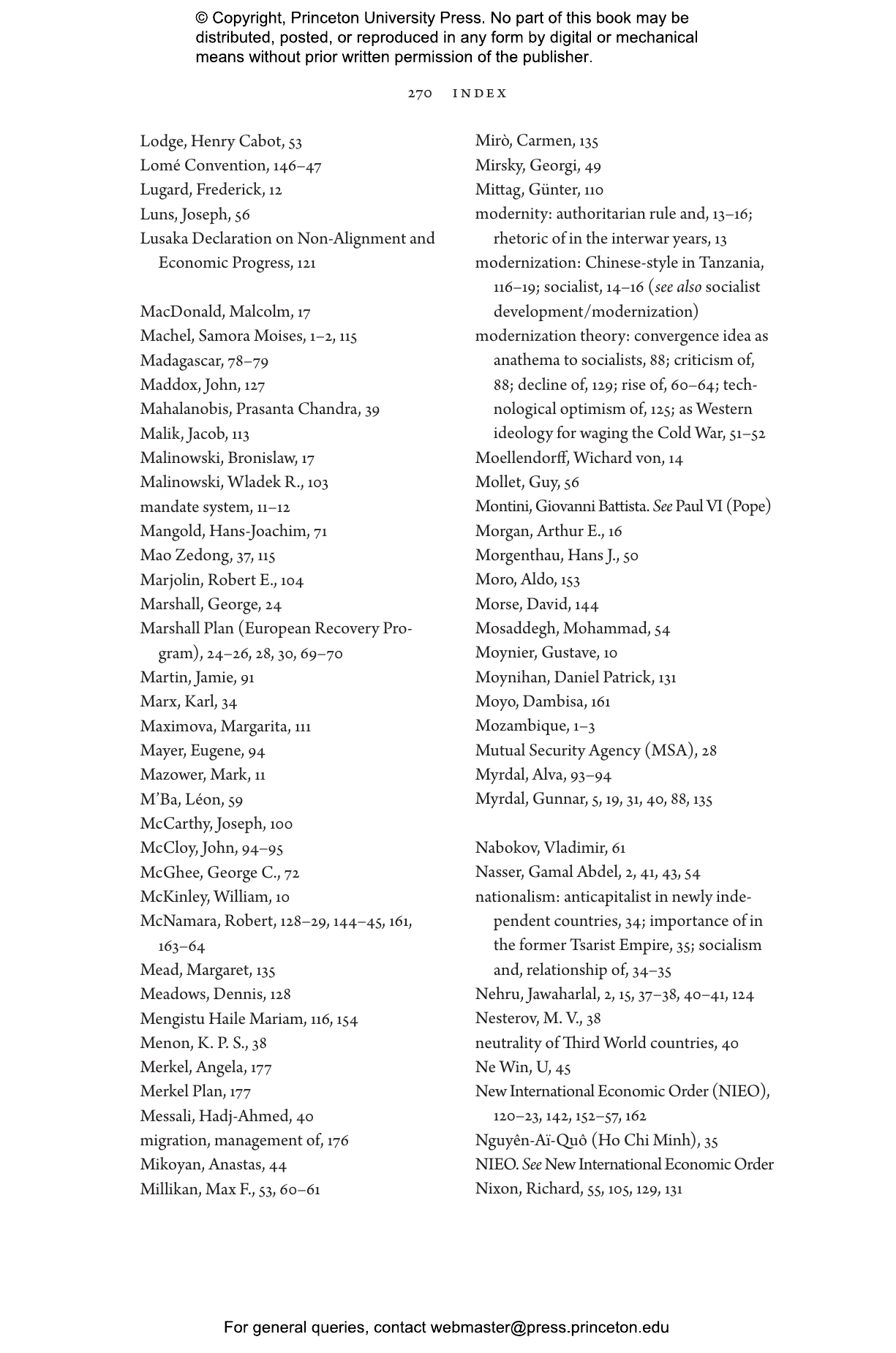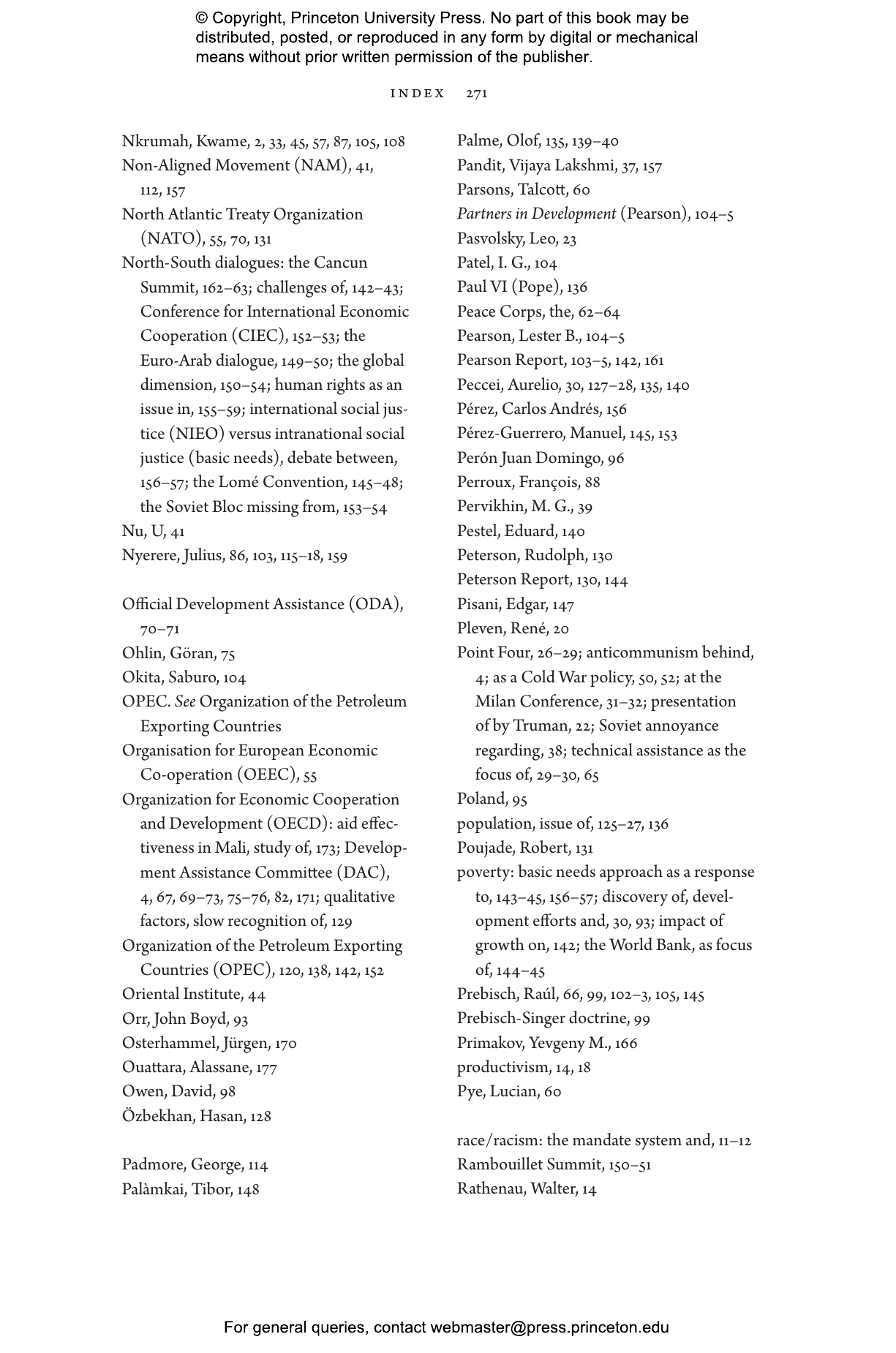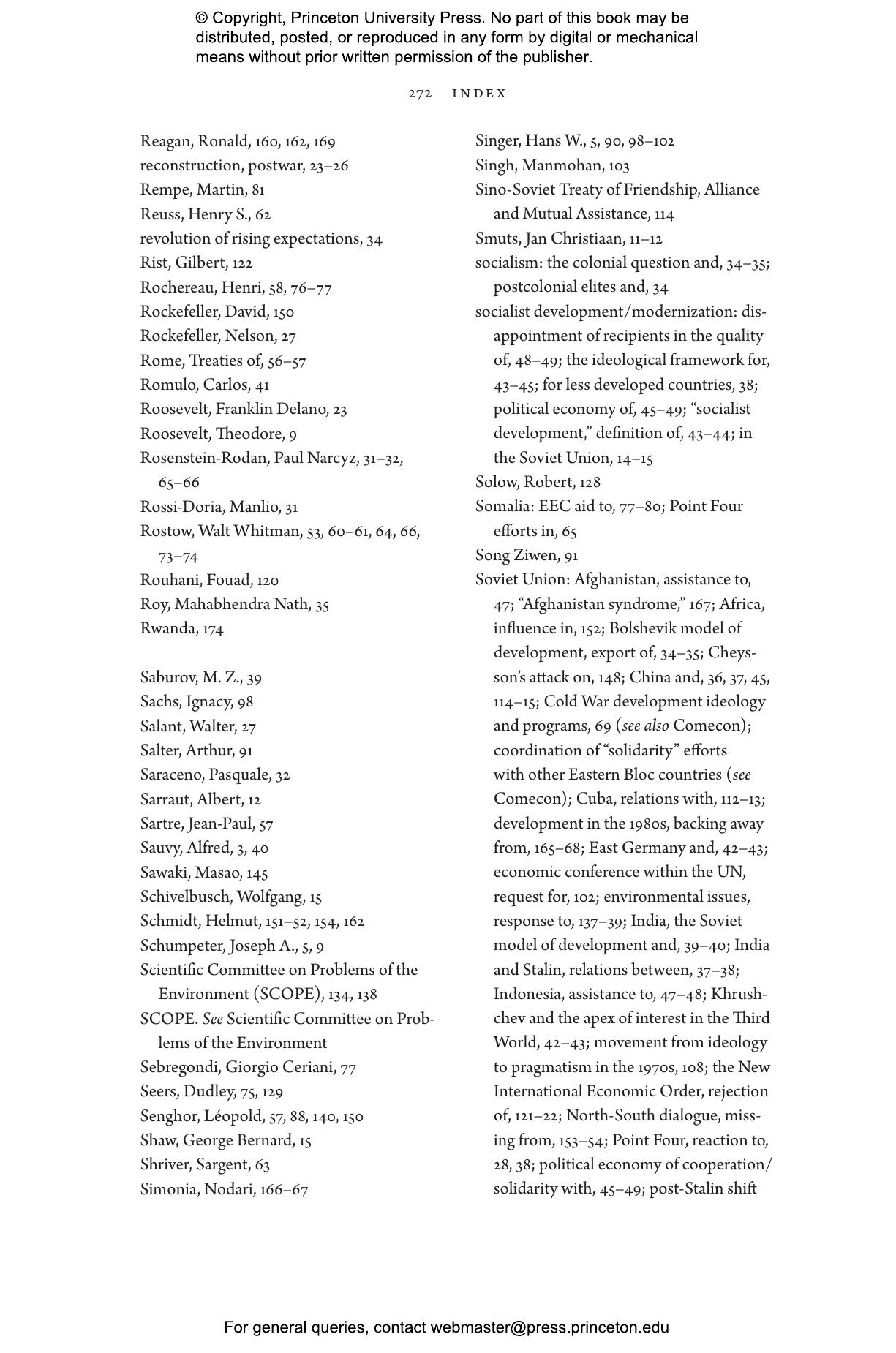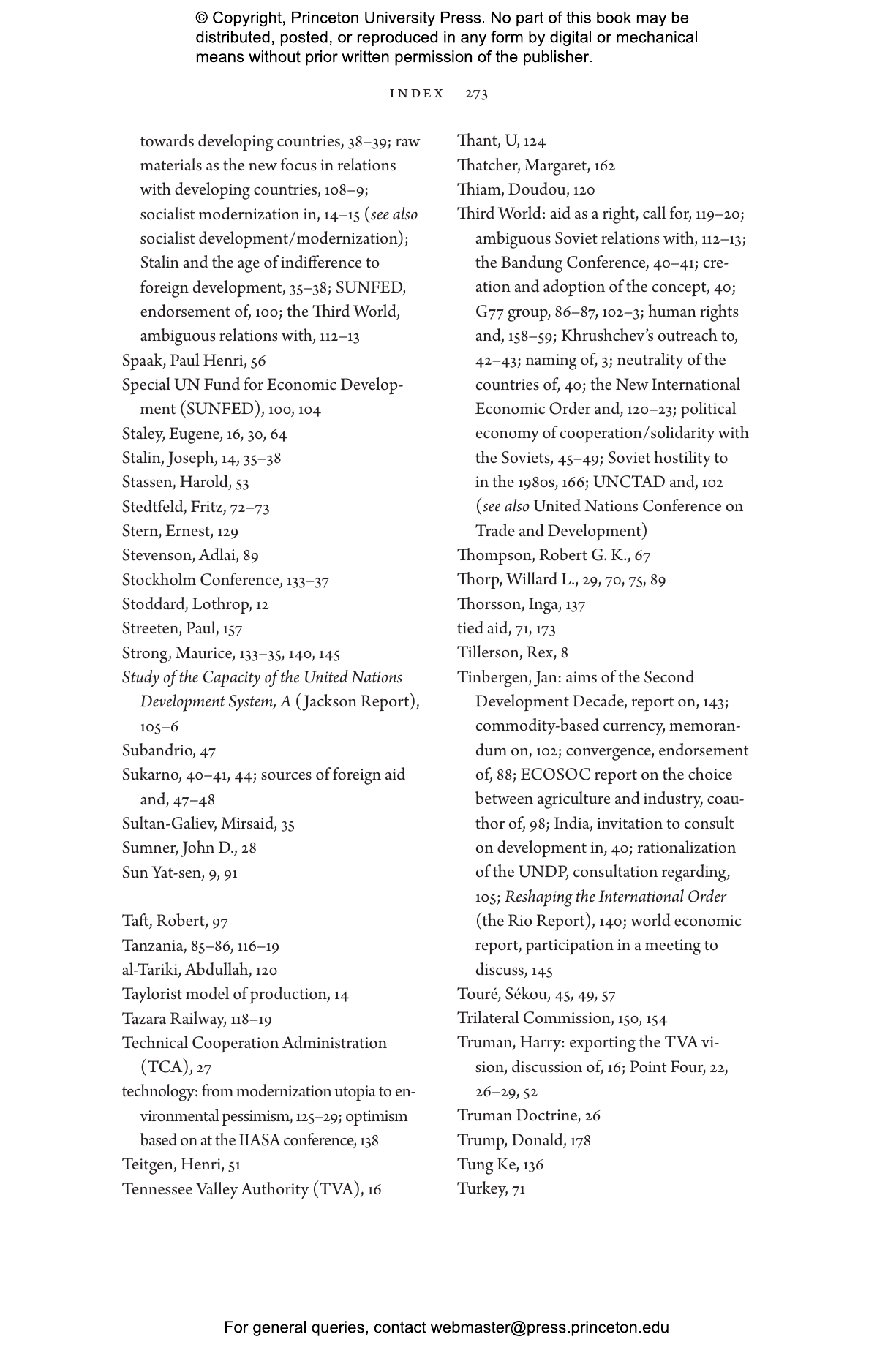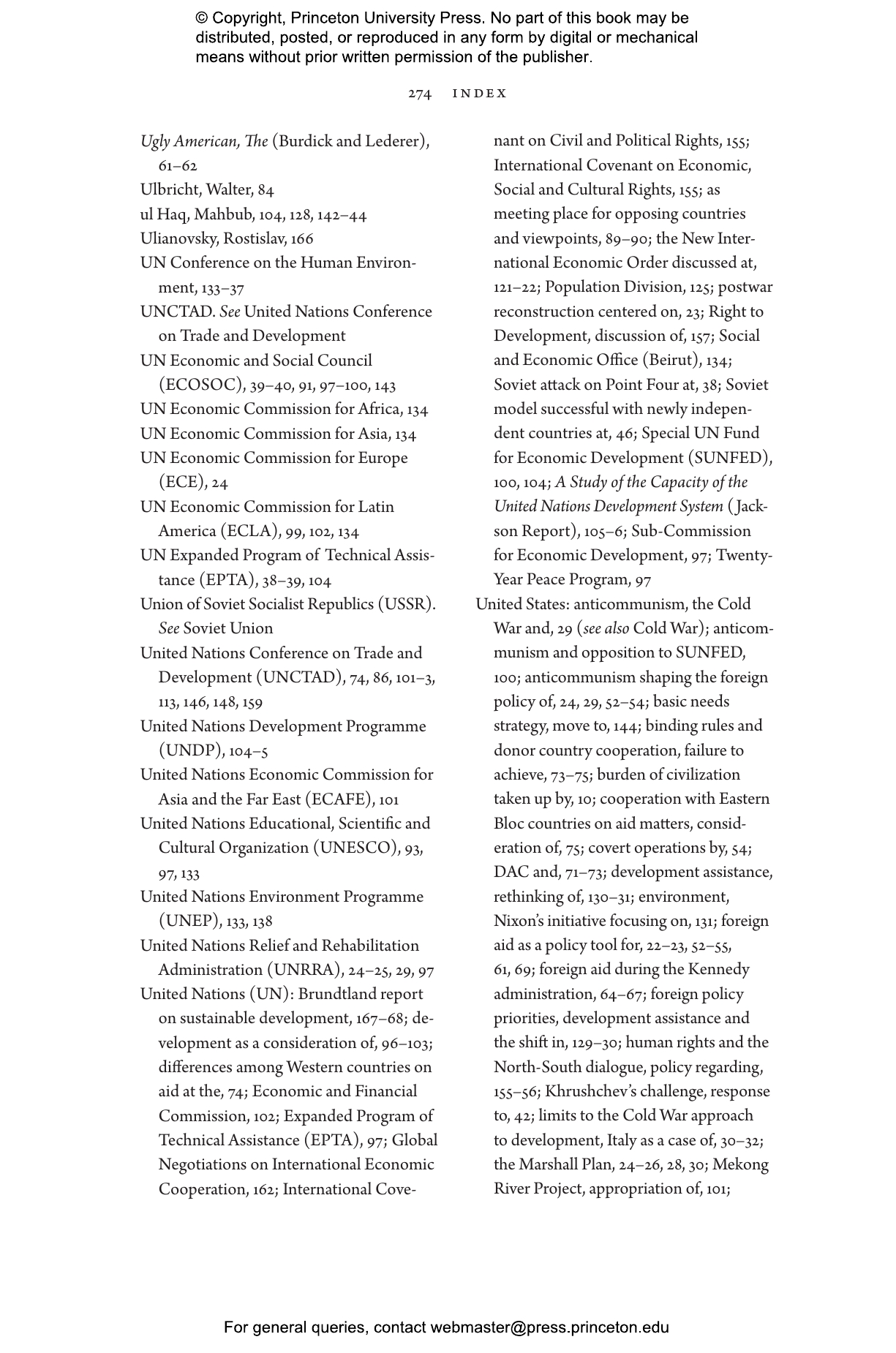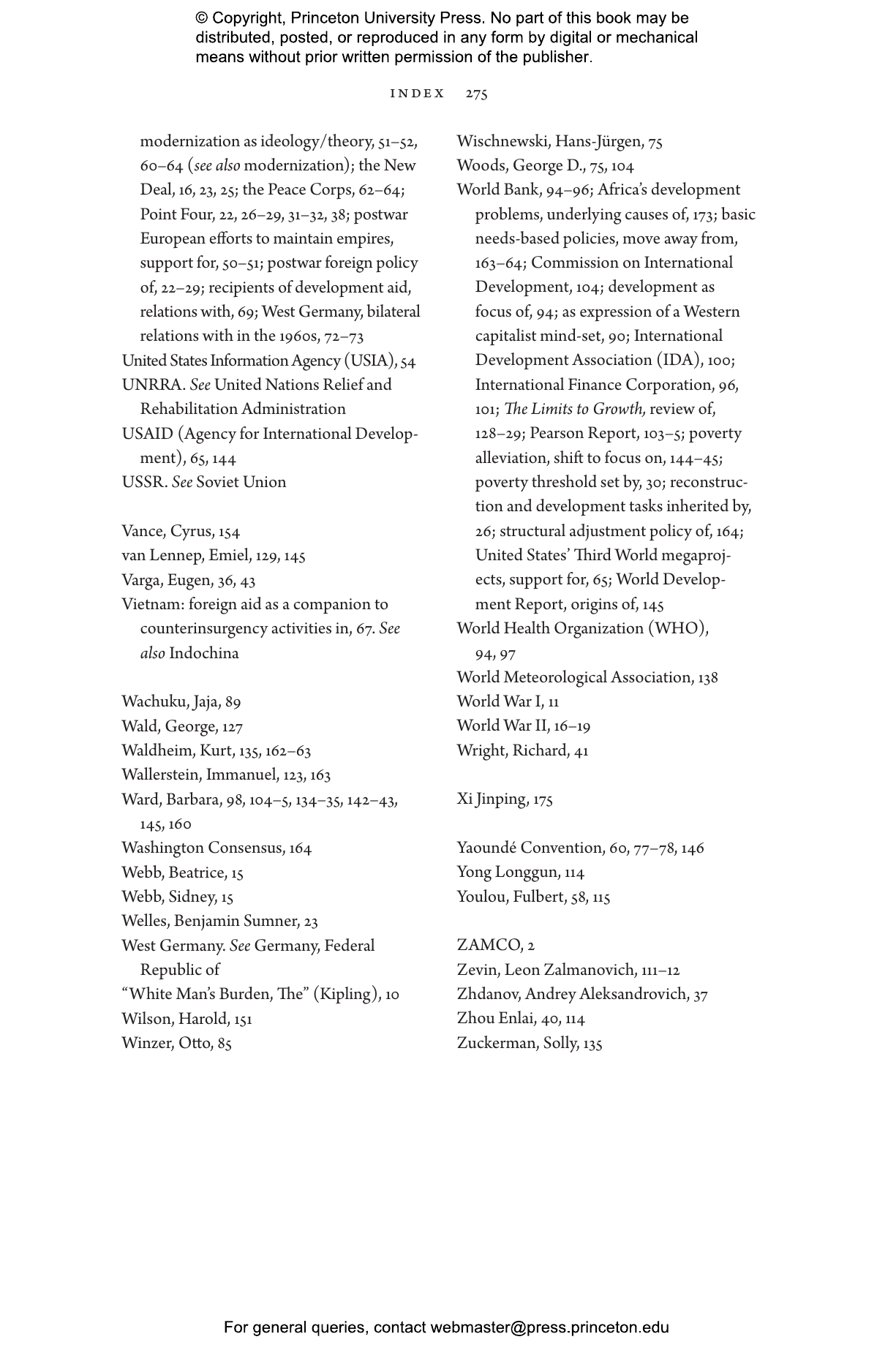In the Cold War, “development” was a catchphrase that came to signify progress, modernity, and economic growth. Development aid was closely aligned with the security concerns of the great powers, for whom infrastructure and development projects were ideological tools for conquering hearts and minds around the globe, from Europe and Africa to Asia and Latin America. In this sweeping and incisive book, Sara Lorenzini provides a global history of development, drawing on a wealth of archival evidence to offer a panoramic and multifaceted portrait of a Cold War phenomenon that transformed the modern world.
Taking readers from the aftermath of the Second World War to the tearing down of the Berlin Wall, Lorenzini shows how development projects altered local realities, transnational interactions, and even ideas about development itself. She shines new light on the international organizations behind these projects—examining their strategies and priorities and assessing the actual results on the ground—and she also gives voice to the recipients of development aid. Lorenzini shows how the Cold War shaped the global ambitions of development on both sides of the Iron Curtain, and how international organizations promoted an unrealistically harmonious vision of development that did not reflect local and international differences.
An unparalleled journey into the political, intellectual, and economic history of the twentieth century, this book presents a global perspective on Cold War development, demonstrating how its impacts are still being felt today.
"[Sara] Lorenzini . . . presents an in-depth analysis of the process of global development based on national and regional archives and published sources. . . . This well-researched and illuminating book is an essential contribution to the history of postwar global development."—D. A. Chekki, Choice
"In this impressive history, Lorenzini traces the journey of development thinking from its nineteenth-century origins through its entanglements in the great geopolitical struggles of the twentieth century."—G. John Ikenberry, Foreign Affairs
"As the best global intellectual and political history of development available, Lorenzini’s book should become the standard assignment in classes on the history of development. . . . It deserves wide readership."—Nils Gilman, H-Diplo
"Lorenzini . . . not interested in praising or denouncing the development enterprise, but rather in historicizing it, considering its origins, how it has changed over time, and how scholars can go about studying it. That alone makes these volumes welcome and timely."—Artemy M. Kalinovsky, Journal of Contemporary History
"[A] smart, concise survey of twentieth-century development ideology and practice."—Thomas C. Field Jr., The Middle Ground Journal
"Through its ambitious exploration across time and space, Global Development has performed an extraordinary feat; it is a book that will be of value to scholars and nonspecialists alike."—Giuliana Chamedes, American Historical Review
"Sara Lorenzini offers a lucid, well written and often insightful narrative on the main global
development concepts and policies between 1945 and 1989."—Iris Borowy, Cold War History
"Global Development is a thorough and accessible account of a very complex and important topic. It is an essential reading that deserves a wide (both scholarly and general) readership and that should be on the shelves of everyone interested in the topic of international development specifically and of the Cold War more generally."—Bence Kocsev, Comparativ
"[Global Development] provides an impressive new account of the history of international development. . . . An evocative book that, given its range and broad coverage of topics, may become the go-to introductory history of the twentieth-century history of development for some time to come.—Igor Logvinenko, Political Science Quarterly"
"Sara Lorenzini offers us a fresh take on a well-established field of historical inquiry. . . . This slim volume is the perfect union of concision and capaciousness, and Lorenzini’s keen ability to explain complex historical phenomena in a way that is accessible and engaging will make Global Development an essential read."—Jessica Lynne Pearson, Journal of Modern History
"A unique achievement. Lorenzini brings together a wealth of recent historical studies on development and integrates them into a global narrative that is both lucid and comprehensive."—Nick Cullather, author of The Hungry World: America’s Cold War Battle against Poverty in Asia
"Global Development makes a signal contribution to the history of development. It ranges across Cold War East-West divides and incorporates perspectives from the Global North and South. Informed, incisive, and broad-minded, the book will prove essential for scholars and especially students interested in understanding development, one of the key phenomena of the late twentieth century."—David C. Engerman, author of The Price of Aid: The Economic Cold War in India
"A succinct yet extremely rich and comprehensive history of development as a Cold War political and ideological project. This book is a must-read for those who want to understand the nature, contradictions, and changes of postwar international relations."—Mario Del Pero, Sciences Po, Paris
"Lorenzini unsettles our too complacent assumptions about which stories count and who mattered in the history of development during the Cold War. Historians of international organizations will find her deft depiction of the multilayered political landscape—with its intersecting national, international, and ideological ambitions—rewarding."—Glenda Sluga, author of Internationalism in the Age of Nationalism
"Destined to become a standard in the historical literature on development."—Odd Arne Westad, author of The Cold War: A World History


